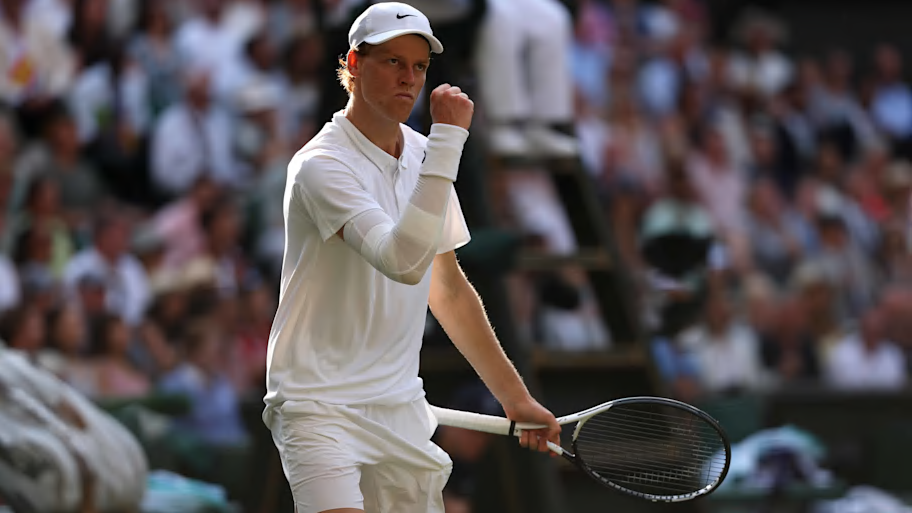
The conventional wisdom is that the sequel isn’t as good as the original, but the summer tennis blockbuster, Jannik Sinner vs. Carlos Alcaraz, has been pretty great in all incarnations. Five weeks to the day after their instant-classic showdown in the French Open final (won by Alcaraz in a fifth-set match tiebreak), they rematched inside the sport’s cathedral, Centre Court at Wimbledon.
Sinner reversed what happened in Paris, winning the Wimbledon final 4–6, 6–4, 6–4, 6–4. His first Wimbledon title, and the first won by an Italian, deprived Alcaraz of winning three in a row. It also stopped Alcaraz’s winning streak in this spellbinding rivalry at five, and it gave Sinner his fourth major overall (and third in the last 10 months).
The No. 1 vs. No. 2 match that everyone had eagerly anticipated since the beginning of the tournament started like an extension of what we saw in Paris. Two exceptional players, Sinner with superior precision, and Alcaraz with superior dynamism. After several rollicking rallies, Alcaraz pulled the first set, 6–4, his fourth consecutive set over Sinner, and suddenly was on the threshold of winning yet again. But then, Sinner’s steadiness and conviction set in, and Alcaraz dropped a gear. This is an essential characteristic of their rivalry. At his very best, Alcaraz is the best player on the planet. Sinner would concede as much. He has so much power and pyrotechnics. But when Alcaraz’s level drops, Sinner’s steadiness takes root. That’s precisely what happened in the final two hours of the Wimbledon final.
Pinning Alcaraz deep on the baseline and neutralizing his offense, Sinner started dictating play. He took no great risks, but was precise as ever. He won the second set 6–4, scored a break in the third set to win that one 6–4 and scored yet another break in the fourth. By this time, Alcaraz’s usual joyful disposition was gone, and Sinner played with an uncharacteristic strut. There was one minor moment of drama late in the fourth set, recalling the match point Sinner squandered at Roland Garros, with Alcaraz winning three points on his serve at 4–3. Sinner, though, steadied, won the game to push to 5–3 and then served out the match with poise.
Immediately, he dropped to his knees, no doubt thinking of all that he had overcome. Here is a player who came within one point of winning four consecutive majors, the non-calendar year Career Slam, but in that period, he had also undergone a 90-day doping suspension and a devastating loss in the Paris final. This was a true triumph of will.
For Alcaraz, this defeat must sting. While he has already won a major this year, and his five majors at 22 years old put him on a trajectory for generational greatness, this was not his best performance. There were times when he was too cute by trying ill-advised drop shots, going for the spectacular when the steady would’ve sufficed.
As for Sinner, he now sets his sights on a third major in 2025 (this, remember, is a year in which he has taken three months off). He has reset the terms of his rivalry with Alcaraz and will head to New York as the top seed and the favorite to defend his title. There’s a long staircase separating Sinner and Alcaraz from the rest of the field—this was the seventh consecutive major where one or the other has won. But if the sport has a new rivalry that serves up this level of tennis and drama, we’re doing pretty well here, folks.
More Wimbledon on Sports Illustrated
This article was originally published on www.si.com as Jannik Sinner Exacts Revenge With Wimbledon Win.







